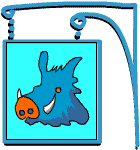English Pub Names
Created | Updated Nov 14, 2011

Names of English pubs, like names of racehorses, are a law unto themselves. This is so they can easily be identified by taxi drivers through the otherwise unintelligible drawl of customers who are halfway through a pub crawl.
Pubs are often named after everyday objects, such as The Brick and The Plough, but surprisingly you don't come across many pubs called The Slow-moving Queue or The Furious Motorist. There are also lots of animals celebrated in pub names - The Swan, The Dog and Duck, The Bull for example - but no satisfactory explanation has been put forward to explain The Red Lion, The Dancing Newt, The Green Dragon or The Blue Boar, none of which have ever made appearances in the parks and forests of England (unless you believe the early writings of the Druids, who also frequented pubs like The Happy Mushroom and The Flying Hippopotamus).
There's even less of an explanation for the English habit of naming their watering holes after parts of the body. The Queen's Head nestles next to The Cricketer's Arms (which could explain the national team's performance) while those who drink down The Cock and Bottle try not to think about it too hard. Then there are the awful puns (The Dew Drop Inn), the blatant lies (The Jolly Farmer), the infuriatingly chirpy (The Tally Ho!) and the plain disturbing (The Swan with Two Necks).
There are two things about pub names that are unforgivable. The first is the continued use of "quaint" ancient spelling: Ye Olde Bulle might proudly proclaim that it serves genuine Olde English Fayre for lunch, but that doesn't explain why every dish comes with chips and gravy. The second is the influx of the chain pub name, such as The Slug and Lettuce or The Fleece and Firkin, where you can find amusing signs above the bar proclaiming "the best firkin beer in town" or "live entertainment every firkin Saturday". Even after ten pints these witticisms aren't very firkin funny.

